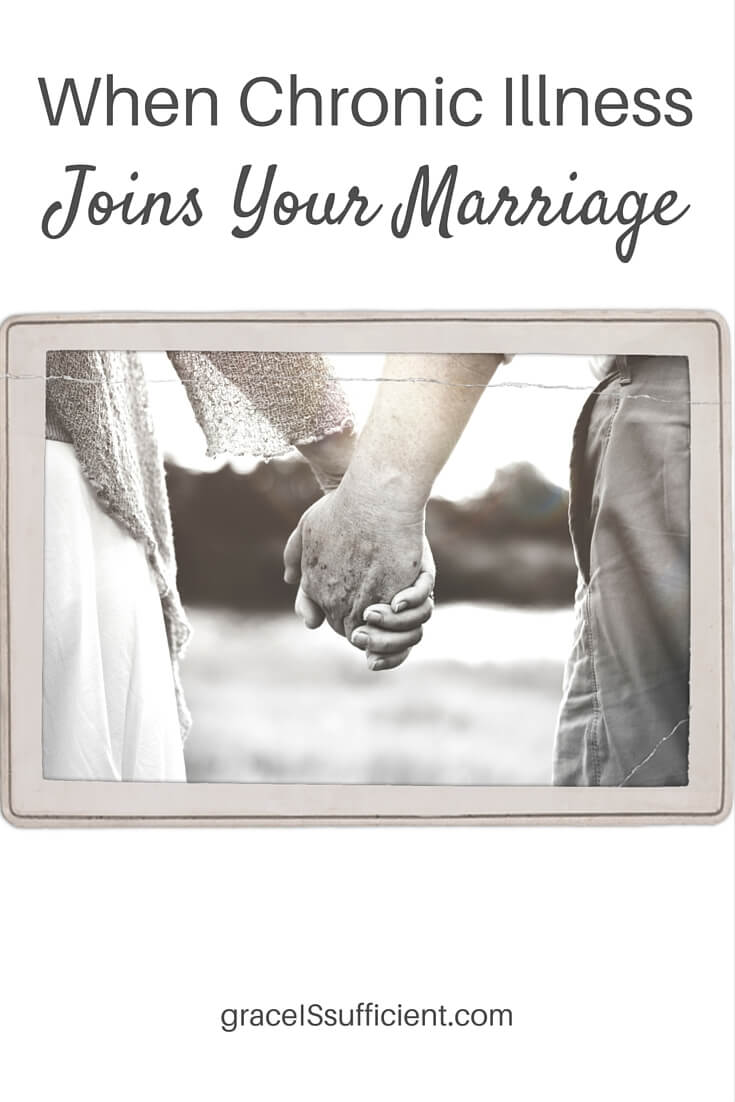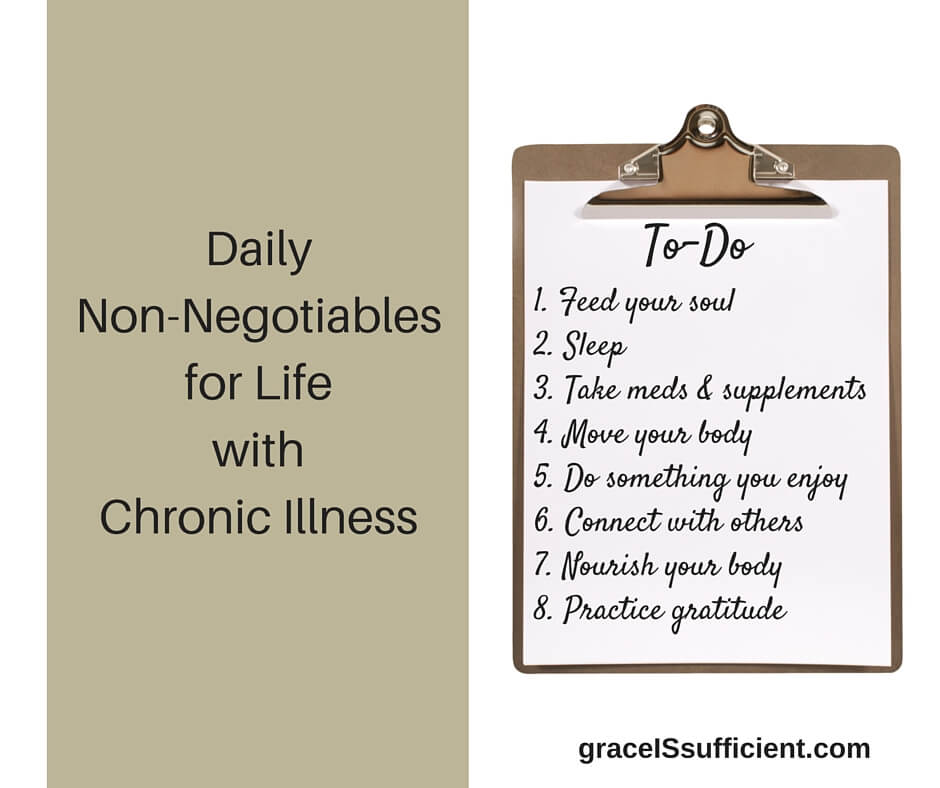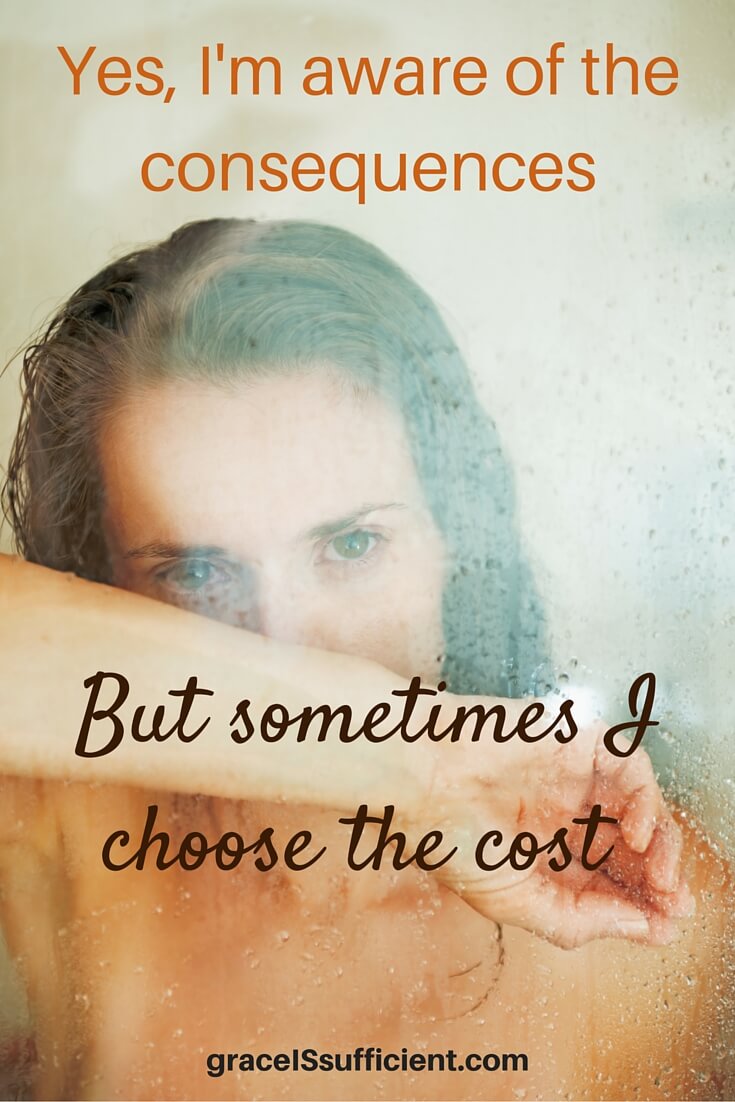I think one of the hardest challenges of having a chronic illness is being understood.
No matter how loving and supportive and genuinely concerned a person is, they simply cannot understand if they are not ill themselves. Let me just use a few areas of our lives as examples.
The Day to Day Decision Process
The whole thought process of a chronically ill person is vastly different from a “healthy” person. Until someone has to process through a million factors before they can make one decision, they have no idea what it’s like.
Going to the grocery store may be super simple to some. — We need milk. I’ll run and get it now.
For those that are chronically ill, there may be 20 or more decisions you need to process before you can walk out your door.
When is my next dose of meds? Do I have time to get there and back before then? How’s my energy level today? Is there anything else I need to do tonight? Because if I run to the store I may not have the energy for tonight’s commitments. Do I have a freezer meal handy because running to the store will suck any energy I have available for making supper? How far in the store do I need to walk to get the item I need? Is someone available to drive me? Wait – I’m exhausted from taking a shower and need to take a nap now. Never mind, we’ll get milk tomorrow.
Advice from Friends and Family
I know people mean well. I’m sure there are sick people out there who are bad at being sick, just like there are parents who are awful parents. People who don’t try anything to help themselves. But I think, for the most part, we’re all willing to do and try, whatever it takes to get better. Odds are we’ve already heard of it, tried it, or know people who have.
This subject came up in a Facebook group I’m in. I said I’ve been told every sure-fire cure just short of dancing in my backyard with chickens.
The worst part is, when you run into that well-meaning person a few months later, they ask if you’ve tried their voodoo treatment – only to shake their head shamefully at you, as if to say, “you must want to stay sick since you haven’t tried treatment “x” as I told you to.”
See, what they don’t realize is something that might seem like a simple thing to them, but it isn’t always something we can do. A new supplement they suggest might clash with our meds. A new clinical trial being held five states away may not be covered by our insurance. Etc.
I personally don’t like to go into a lot of detail with people. If I’ve tried their “plan x” I’ll tell them, but that’s usually where I’ll draw the line. I don’t go into the list of excuses like my meds or insurance, etc. They may just suggest dropping all my meds to try their magic elixir and give me the same shameful glance when I don’t.
I've been told every sure-fire cure short of dancing in my backyard w/ chickens.
Guilt
Most people I know that suffer from chronic illness also struggle with feelings of guilt. We wish we could do more, be more and enjoy more. If we’re no longer able to work, we have the guilt that we’re not helping to support our families and our health stops us from being able to contribute in other ways at home.
Canceling plans is harder on us than they’ll ever realize. More than anything, we want to participate in normal life with those we love. To us, it’s one more event we have to miss out on.
Honestly, binge-watching Netflix from a recliner gets old. We’d rather do almost anything else.
Most people who suffer from a #chronicillness also struggle with feelings of #guilt.Poor Self-Esteem
When we’re not able to do the things others think/wish we should be doing, and we’re not able to participate in things with our families, it tends to take a hit to our self-esteem. We can’t help but wonder if others really believe us and our symptoms. Even if they do believe us, we wonder if they think we’re using our illness as an excuse at times.
Then there’s the lack of outward signs from invisible illnesses – people can’t see we’re sick. They see us as over-weight/underweight, having skin rashes – all the way to looking perfectly “normal” as we’re getting out of our car in a handicapped parking space or grabbing the motorized shopping carts at the grocery store.
We see the sideways glances or the blatant stares. We just don’t have the energy to explain it to them and frankly, we shouldn’t have to.
We see the stares. We just don't have the energy to explain our illness and we shouldn't have to.Grief
They will never understand our grief. The grief that comes from mourning the life we’ve lost and losing the ability to have the things that might have been.The grief of missing out on opportunities with our children. We may have passed through all five stages of the grief process and have finally come to rest at acceptance. But the grief is real nonetheless.





